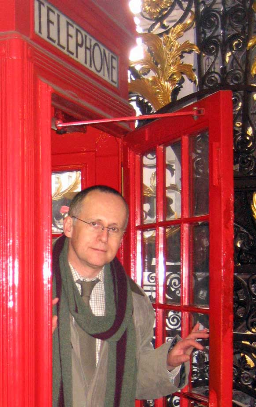
Ted Nield reflects on the need for scientific comment – no matter what.
Geoscientist 17.11 November 2007
The bright sun was extinguish’d and the stars
Did wander darkling in the eternal space,
Rayless, and pathless, and the icy earth
Swung blind and blackening in the moonless air;
Morn came and went – and came, and brought no day…
So wrote Lord Byron in his poem "Darkness", composed in June 1816 on the shores of Lake Geneva in the midst of the "Year Without a Summer", 14 months after the great eruption of Mount Tambora (Indonesia) in April 1815.
As a result, 1816 is probably the best-known example of a volcanically induced climate-cooling event. The aerosol veil, which spread around the globe in the same year William Smith published his great map, is thought to have caused Northern Hemisphere cooling of up to 1 degree Celsius. Snow fell in June in New England. Abnormally cool temperatures in Europe led to widespread misery - although the connection to volcanic aerosols was not realised at the time.
Today of course, the link is well recognised, and I am willing to bet that if any eruption large enough to make global news had happened in 2006, volcanologists would have been talking through their aerosols to any journalist willing to listen during the silly season of 2007. Mother Earth missed a PR opportunity there. Instead, of course, the media have been forced back on the other faithful whipping-boy for poor weather – global warming.
Global warming has the PR advantage of being there all the time, and so isn't tied to actual events. It is a tendency. Tendencies are very popular with journalists because once identified, continual recourse can be made to them; the random events of history – "one damned thing after another" as Elbert Hubbard famously described it – can be made to appear to make sense. The need to "make sense" is of course an essential human trait, a real survival skill in an animal that sees patterns and learns from them.
This is why there is no more comforting comfort blanket than some creed (outworn or otherwise) that pretends to make sense of everything at a stroke. At the other end of the spectrum from such dogma lies science with its continual recourse to experiment and to nature. But in between, wallow the rest of us, adrift in a sea of uncertainty.
The media's need to fulfil our yearning for meaning is rooted in its readers' instincts. News must be given significance. Without it, the tide of events might seem more to recall the great historian HAL Fisher's description of history (more polite, but essentially the same as Hubbard's) as "one emergency following upon another as wave follows upon wave" - no plot, rhythm or pattern. The stuff of geology may be history, but the stuff of journalism is politics, and politics – the "strife of interests masquerading as a contest of principles" as Ambrose Bierce had it - are all about dressing naked events in clothes of meaning.
If science wishes to play the media game, it cannot divorce itself from this. Its longer timescales and greater uncertainties can be conveyed in whatever answer may be given; but an answer there must be. To fail to respond, even if only with an informed refusal to speculate, is fatally to miss the point. Refusing to answer will not stifle the question. Persons less qualified will be only too eager to bend events to their agenda in your place.
Science is nowhere powerful enough to change the way the media work: not least because the media behaves as it does because it understands its audience. A bit more understanding of the audience is exactly what science needs.